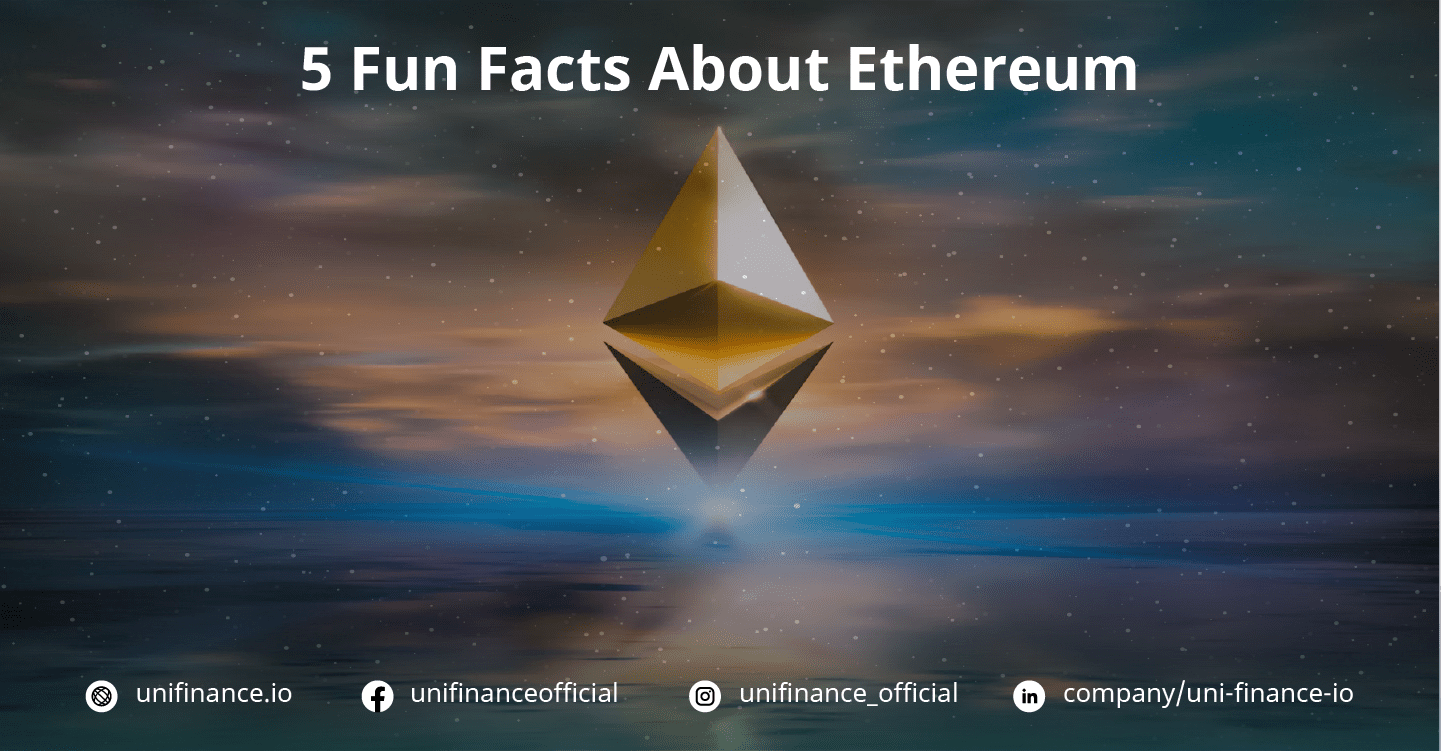5 Fun Facts About Ethereum
We all know that Bitcoin is king when it comes to cryptocurrencies but there are other altcoins that are equally interesting. One of these is Ethereum. Ethereum is a decentralized, open-source blockchain with smart contract functionality. It is a technology that's home to digital money, global payments, and applications.
We have listed 5 fun facts about Ethereum to know it better.
Ethereum was a crowdfunded blockchain
In December of 2013, Vitalik Buterin wrote a white paper proposing Ethereum: a decentralized, global computer run on a blockchain. Additional founders of Ethereum included Gavin Wood, Charles Hoskinson, Anthony Di Iorio and Joseph Lubin. In 2014, development work commenced and was crowdfunded, and the network went live on 30 July 2015.
Ethereum is supported by large businesses
Some of the world’s leading corporations joined the EEA and supported “further development.” The Enterprise Ethereum Alliance (EEA) now has more than 200 member organizations including Samsung Group, J.P. Morgan, Mastercard, and Microsoft — all of whom are experimenting with private versions of Ethereum for enterprise purposes.
Ethereum platform is an open-source
Ethereum and its apps are transparent and open source. You can fork code and re-use functionality others have already built.
Ethereum is unlimited unlike Bitcoins
Ethereum's supply model differs from Bitcoin's supply model. Bitcoin's maximum supply will be limited to 21 million BTC in total, whereas the Ethereum platform has an unlimited supply but an annual maximum supply of 18 million ETH.
Ethereum is switching to Proof of Stake
Ethereum is moving to a consensus mechanism called proof-of-stake (PoS) from proof-of-work (PoW). This was always the plan as it's a key part in the community's strategy to scale Ethereum via upgrades.
The older of the two mechanisms, Proof-of-Work is used by traditional blockchains like that of Bitcoin and Ethereum 1.0 which requires a large amount of computing power to sustain operations.
Proof-of-Stake is an effective alternative developed to overcome the extreme energy consumption of the Proof-of-Work consensus mechanism. Some of the things that can be done with PoS are network's control to the owners of the token, giving mining power based on the percentage of coins held by a miner.
Smart Contracts
A "smart contract" is a program that runs on the Ethereum blockchain. It's a collection of code and data at a specific address on the Ethereum blockchain.
The smart contract eliminates the need for intermediaries. Smart contracts have enabled the renewal and closure of incapacity to work certificates in the healthcare system and prescription of drugs.
Sign up for a FREE account now!Popular Reads
- 10 Games to Earn Cryptocurrency
- What Makes Bitcoin Pump or Dump?
- What You Need to Know About The Bitcoin and Crypto Market Cycles
- Crypto Slangs You Need To Know
- 5 Mistakes to Avoid in Crypto
- What are Meme Coins?
- How to Make Your Own NFT
- 5 Fun Facts About Ethereum
- The Future of Cryptocurrencies
- NFT: The History and Its Future
- Who Is Satoshi Nakamoto?
- Bitcoin Wallet: A Beginner's Guide
- Advantages of Trading Cryptocurrency with Uni Finance
- How to Fund Your Uni Finance Account
- How to Open an Account with Uni Finance
- Why choose Uni Finance
- Trading VS Hodling: What should you do?
- Fun Facts About Bitcoin
- 5 Reasons to Invest in Cryptocurrency
- Types of Cryptocurrency Traders
- How to Prevent Scams in the Crypto World
- 10 Common Cryptocurrency Terms That You Need to Know
- Pros and Cons of Investing in Cryptocurrency
- UNI Finance Is Set To Make Its Mark Into The Cryptocurrency World




